International Cooperation
Department-Level Partner Institutions
MOU
23
SEA
5
DDP
3
FEA
2
Currently, College of Science and its affiliated departments/graduate institutes have built partnership with more than 29 higher education institutions around the world. Some of which are internationally renowned, such as Uppsala University University the Sweden, Seoul National University in South Korea, as well as Universitat Hamburg in Germany . The cooperative types range from MOUs to more active programs such as Student Exchange (SEA), Faculty Exchange (FEA), Dual Degrees Program (DDP)and other short-term programs.
Department of Mathematics

Germany - Julius-Maximilians-Universität Würzburg
Mathmetics Department
- SEA
- FEA
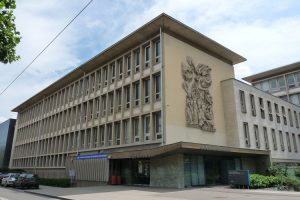
France - Institut National des Sciences Appliquées de Rennes
Department of Mathematical Engineering
- MOU
- SEA
The Institut National des Sciences Appliquées de Rennes or INSA de Rennes is a Grande École d’Ingénieurs, a School of Engineering, under the authority of the French Ministry of Education and Research and part of the INSA’s group. INSA Rennes was founded in 1966 to train highly qualified engineers, support continuing education, and conduct research and testing. The five-year curriculum aims at training engineers who possess humane qualities and are well versed in the primary areas of science and engineering. The school accommodates 1,400 students in engineering.
Department of Physics

United States - University of Houston
Department of Physics
- MOU
The University of Houston (UH) is a public research university in Houston, Texas and the main institution of the University of Houston System. Founded in 1927, UH is the third-largest university in Texas with over 46,000 students.Its campus spans 667 acres in southeast Houston, and was known as University of Houston–University Park from 1983 to 1991. The university is classified among “R1: Doctoral Universities – Very high research activity.

Germany - University of Bonn
Institute for Physical and Theoretical Chemistry
- MOU
- SEA
- FEA
The University of Bonn (German: Rheinische Friedrich-Wilhelms-Universität Bonn) is a public research university located in Bonn, North Rhine-Westphalia, Germany. It was founded in its present form as the Rhein-Universität (English: Rhine University) on 18 October 1818 by Frederick William III, as the linear successor of the Kurkölnische Akademie Bonn (English: Academy of the Prince-elector of Cologne) which was founded in 1777. The University of Bonn offers many undergraduate and graduate programs in a range of subjects and has 544 professors and 32,500 students. Its library holds more than five million volumes.

Finland - University of Oulu
Microelectronics and Materials Physics Laboratories
- DDP
The University of Oulu (Finnish: Oulun yliopisto) is one of the largest universities in Finland, located in the city of Oulu. It was founded on July 8, 1958. The university has around 13,000 students and 2,900 staff. 21 International Master’s Programmes are offered at the university. The university is often ranked as one of the better universities in Finland and in the top-400 worldwide.
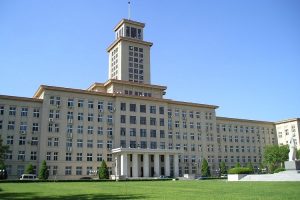
China - Nankai University
School of Physics
- SEA
Nankai has long been recognized as one of the most prestigious universities in China, constantly ranked among various top 10 lists of Chinese Universities. As a comprehensive university with a wide range of disciplines, Nankai features a balance between the humanities and the sciences, a solid foundation and a combination of application and creativity. The university has 26 academic colleges, together with the Graduate School, the School for Continuing Education, the Advanced Vocational School, the Modern Distance Education School, and categories covering literature, history, philosophy, economics, management, law, science, engineering, agriculture, medicine, teaching and art. The university is especially well known for its economics, history, chemistry and mathematician researches and studies.

China - Beijing Computational Science Research Center
Simulation of Physical Systems Division. Quantum Physics and Quantum Information Division
- MOU
CSRC is a multidisciplinary fundamental research organization under the auspices of the China Academy of Engineering Physics (CAEP). Established in August 2009, CSRC positions itself as a center of excellence in computational science research addressing current and critical issues in multidisciplinary areas of Mathematics, Mechanics, Physics, Chemistry, Materials Science, and Computational Science.
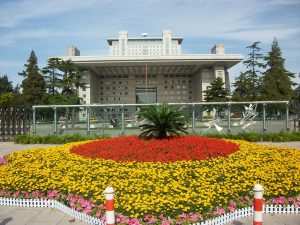
China - Beijing Normal University
Department of Physics
- SEA
Beijing Normal University (BNU, simplified Chinese: 北京师范大学; traditional Chinese: 北京師範大學; pinyin: Běijīng Shīfàn Dàxué), colloquially known as 北师大 or Beishida, is a public research university located in Beijing, China, with a strong emphasis on basic disciplines of the humanities and sciences. It is one of the oldest and most prestigious universities in China, and was recognized by the Chinese Ministry of Education as a Class A Double First Class University.
Department of Chemistry
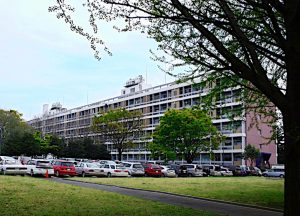
Japan - Institute of Physical and Chemical Research
- MOU
Department of Computer Science & Information Engineering
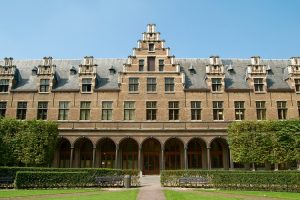
Belgium - University of Antwerp
Department of Mathematics and Computer Science
- DDP
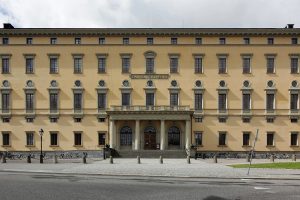
Sweden - Uppsala University
Department of Information Technology
- MOU
- SEA
- DDP
Graduate Institute of Science Education

United Kingdom - Open University
- MOU
The Open University (OU) is a public research university and the largest university in the UK for undergraduate education. The majority of the OU’s undergraduate students are based in the United Kingdom and principally study off-campus; many of its courses (both undergraduate and postgraduate) can also be studied anywhere in the world.There are also a number of full-time postgraduate research students based on the 48-hectare university campus in Milton Keynes,where they use the OU facilities for research, as well as more than 1,000 members of academic and research staff and over 2,500 administrative, operational and support staff.
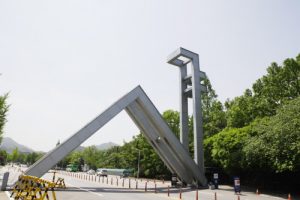
Korea - Seoul National University
Center of Science Education for the Next Society Department of Science Education Graduate School Science Education Research Center
- MOU
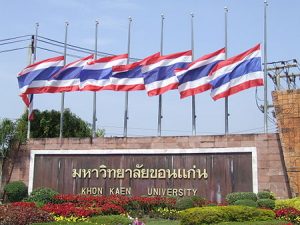
Thailand - Khon Kaen University
Faculty of Education
- MOU
Khon Kaen University (Thai: มหาวิทยาลัยขอนแก่น) or KKU (มข.) is a public research university in Thailand. It was the first university established in northeastern Thailand and remains the oldest and largest university in the region. The university is a hub of education in northeast Thailand. It is a widely recognized university in Asia. KKU offers a wide range of programs: its comprehensive academic program offers 105 undergraduate majors, along with 129 master’s degree programs, and 59 doctoral programs. Khon Kaen University was ranked 21st in Southeast Asia by Time Higher Education in 2009, and 4th in Thailand by The Office of Higher Education Commission.

India - The National Council of Educational Research and Training (NCERT)
- MOU
The National Council of Educational Research and Training (NCERT) is an autonomous organisation set up in 1961 by the Government of India to assist and advise the Central and State Governments on policies and programmes for qualitative improvement in school education. The major objectives of NCERT and its constituent units are to: undertake, promote and coordinate research in areas related to school education; prepare and publish model textbooks, supplementary material, newsletters, journals and develops educational kits, multimedia digital materials, etc. organise pre-service and in-service training of teachers; develop and disseminate innovative educational techniques and practices;collaborate and network with state educational departments, universities, NGOs and other educational institutions; act as a clearing house for ideas and information in matters related to school education; and act as a nodal agency for achieving the goals of Universalisation of Elementary Education.
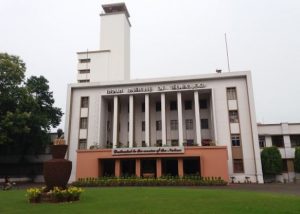
India - Indian Institute of Technology Kharagpur
Centre for Educational Technology
- MOU
The Indian Institute of Technology Kharagpur (IIT Kharagpur or IIT-KGP) is a public technical and research university established by the government of India in 1951. It is the first of the IITs to be established and is recognised as an Institute of National Importance. In 2019 it was awarded the status of Institute of Eminence by the government of India. The institute was initially established to train scientists and engineers after India attained independence in 1947. However, over the years, the institute’s academic capabilities diversified with offerings in management, law, architecture, humanities, etc. IIT Kharagpur has an 8.5 square kilometres (2,100 acres) campus and has about 22,000 residents. The students and alumni of IIT Kharagpur are informally referred to as KGPians.

Indonesia - Indonesia University of Education
School of Postgraduate Studies
- MOU
Graduate Institute of Environmental Education

Germany - Universitat Hamburg
Institute of Geography, Department of Geosciences
- MOU
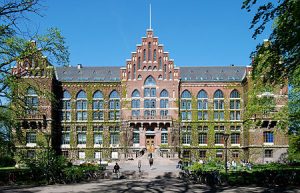
Sweden - Lund University
Department of Social and Economic Geography
- MOU
- SEA
Lund University (Swedish: Lunds universitet) is a prestigious university in Sweden and one of northern Europe’s oldest universities. Lund University is consistently ranked among the world’s top 100 universities. The university is located in the city of Lund in the province of Scania, Sweden. It arguably traces its roots back to 1425, when a Franciscan studium generale was founded in Lund next to the Lund Cathedral. After Sweden won Scania from Denmark in the 1658 Treaty of Roskilde, the university was officially founded in 1666 on the location of the old studium generale next to Lund Cathedral. Lund University has eight faculties,with additional campuses in the cities of Malmö and Helsingborg, with 40,000 students in 270 different programmes and 1,300 freestanding courses. The university has some 600 partner universities in nearly 70 countries and it belongs to the League of European Research Universities as well as the global Universitas 21 network.